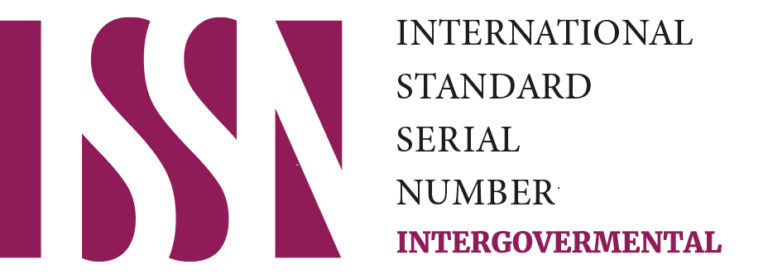ABSTRACT
Sanctions is a widely used concept in many states’ foreign policy yet lacks clarity of meaning under international law. Different sanctions have been imposed against Somalia since the 1990s. The first multilateral sanction was imposed by the UN on January 23, 1992. Most countries prefer multilateral sanctions despite their ineffectiveness due to a lack of political consensus and members’ cooperation. This paper sought to find out whether sanctions are effective, those affected by sanctions, and whose determine sanctions application. Sanctions are imposed unilaterally or multilaterally and can either be positive or negative. Somalia has received vast multilateral sanctions imposed since 1992, which have primarily affected the civilians—mass displacements of civilians, harmful conflicts, terrorist attacks, starvation and drought, and clan wars. Rather than helping the state rebuild itself and reform its structures, the consequences of sanctions have been borne by the population. Somalia has remained a stateless state since 1991 despite some ‘error and try’ elections in the country. The paper concludes that economic sanctions are ineffective as they trade lives and thus, supports Johan Galtung’s position that the collective nature of economic sanctions makes them hit the innocent along with the guilty.
INTRODUCTION
For centuries, sanctions have been a significant facet in almost all states’ foreign policy. Most states rely on sanctions for different reasons, including domestic political needs, economic pressures, foreign policy, and national security objectives.[1] Sanctions range from economic to political to military. Some states use them to compel compliance with Treaty obligations. Mostly used type of sanctions is economic sanctions. It was used by “early modern Europe as a subordinate instrument of the military policy during times of war. For instance, Athens imposed economic sanctions import embargo against the Greek city-states for their refusal to join the Athenian-led Delian League during the Peloponnesian War.”[2]
Somalia, a country located in the horn of Africa, has undergone periods of sanctions imposition from economic to the arms embargo, which has severely sabotaged the country’s economy, political, and stability state and whose effects are borne by the civilians. Despite the different sanctions imposed against Somalia since 1992, the country remains deprived, dangerous, very underdeveloped, unstable, and a terrorist habitation. Killings, mass displacements of civilians, terrorist attacks, and drought/starvation of citizens have befallen Somalia. Who is affected by the imposition of sanctions? Who determines what sanctions to be imposed? Are sanctions effective? These are the questions which this paper aims to answer through review and analysis of different sources. Though the paper dives into all types of sanctions, by and large, it focuses on economic sanctions. It supports one of the leading scholars, Johan Galtung’s position, “the collective nature of economic sanctions makes them hit the innocent along with the guilty.” The paper deploys an in-depth desk review, official documents, journal articles, critical analysis, and interpretations. It is divided into four sections with sub-sections: Introduction, The State of Somalia, Effectiveness or Ineffectiveness of Sanctions? and Conclusion.
THE STATE OF SOMALIA
Compared to other nations across Africa, Somalia is relatively a small nation with an estimated population of 15 million and has one of the largest single clan-ethnic blocks in Africa.[3] The Somali people are dominantly Muslims, with a larger majority of pastoralists and other agriculturalists. Somalia became a Republic in 1960 by the federation of a former Italian colony and a British protectorate. During this period, Somalia had a stable democracy, and one envied by other African states- a democracy that embraced the separation of power, free judiciary, and free press.[4]Unfortunately, in 1969, civil politics turned uncivil, shifting from authoritarianism to autocracy.[5] Reportedly, from 1969 to 1991, Somalia operated under the dictatorial leadership of Mohamed Siad Barre. In 1991, he was overthrown through a “bloody civil war waged by clan-based guerillas.”[6] During this decade, the country underwent a series of fragmentation whereby the self-proclaimed Republic of Somaliland declared its independence from Somalia in 1991 while the Puntland State of Somalia declared itself an autonomous region of Somalia in 1998. Both are unrecognized internationally. International law requires a state to have its own permanent population, own and control a separate territory with each held together by political, economic, cultural, and (and frequently also ethnic or religious) links, and own a functional government.[7] This explanation justifies the reason why Puntland and Somaliland are still unrecognized as states. They are yet to meet the prerequisites of state.
What could have caused the move from civil to uncivil politics in Somalia? From the 1950s, most African states practiced an imposed European democracy which was unfamiliar to many, and a state like Somalia that has a clan-based political system, it was flinty to implement a European democracy. Throughout Barre’s 21-year dictatorial rule (1969–1991), “even though he maintained to having been enthused by an altruistic desire to salvage the society from corrupt post-colonial plunderers, he remained what Samuel Finer described “the man on horseback.”[8]His seizure of power and adoption of an absolutist authoritarian rule led the unified Somali State to a state of stateless. Though he had promised and bestowed hope for a “Somalia-based democracy” and abolition of clannism, Barre shortchanged the Somalis shortly after. With immense use of money and arms (from Soviet) and coercion, he applied one of the worst dictatorial and clannism rules.[9] Just after a year in power, Barre proclaimed Socialism and prohibited clannism. His rule became a selfish rule that only met his political power ambitions. This selfishness and shortchanging mounted so much pressure and led to his overthrow in 1991. Since then, Somalia has operated in a stateless state.
In the 2000s, Somalia tried elections though the change and development are yet to be felt. In February 2021, Somalia was to conduct elections, which unfortunately have been “postponed due to disagreements on the electoral process by Somali political stakeholders.”[10] Clannism, autonomous regions, instability, and external influence are some of the reasons for delayed elections.
EFFECTIVENESS OR INEFFECTIVENESS OF SANCTIONS?
1.1. DEFINITION AND TYPES OF SANCTIONS
Sanctions is a widely deployed concept in many states’ foreign policy, yet it is one of the words without clarity of meaning. One of the leading scholars asserts that the “international law provides no standards on which sanctions can be based or their destructive impact limited. Ironically, then, sanctions are used to enforce the law, but they are outside the law.”[11] Under the UN Charter, Article 39, a prerequisite for imposing sanctions on any State is that the UN Security Council “determine the existence of any threat to the peace, or act of aggression.” After identifying the above, the Council may make the recommendations. According to one of the scholars, “no discussion or debate seems ever to have taken place about this an all-important political device”[12]– sanctions.
Explicitly, the term sanctions appear nowhere in the UN Charter. Nevertheless, Article 41 of Chapter VII provides the almost definition on which the entire UN sanctions system stands. The Article states:
The Security Council may decide what measures not involving the use of armed force to be employed to give effect to its decisions, and it may call upon the Members of the United Nations to apply such measures. These may include complete or partial interruptions of economic relations and of rail, sea, air, postal, telegraphic, radio, and other means of communications, and the severance of diplomatic relations.
This definition, therefore, raises questions on the legality and legitimacy of sanctions when the instrument which should clarify such meaning does not. Also, the UN does not provide the means to enforce sanctions in its own right—it must depend on voluntary compliance by member states and other non-state actors. It is conclusive, thus, that sanctions will often fail because they are inadequately enforced.[13]
Sanctions may be classified as positive or negative, unilateral or multilateral. Under the UN charter, no classification is provided, that is, economic, political, or military. Negative sanctions entail “actual or threatened measures that impose costs or withhold benefits from a targeted state for pursuing or failing to pursue a certain policy while positive sanctions are commonly “used in foreign policy negotiations.[14] For instance, a country is promised an incentive such as technical assistance and trading permission in exchange for nuclear disarmament or cessation of support to terrorist groups. This has happened for such countries as North Korea. Negotiations are also part of positive sanctions such as those between the “Security Council and Iran over its uranium enrichment program.”[15] A leading scholar asserts that “an optimal economic sanctions policy should rely on a combination of both positive and negative sanctions while recognizing that the right mix will vary depending on the circumstances of each case.”[16]
Unilateral sanctions are sanctions imposed by one country to another/others. These sanctions affect both the state and the target country. For instance, the sanctions imposed by the US against Cuba and Iraq not only weakened their economies but also affected the US in terms of loss of exports, jobs, and profits.[17] On the other hand, multilateral sanctions are imposed through the United Nations Security Council (UNSC) and regional bodies such as the European Union, African Union, among others. Some scholars argue that multilateral sanctions are “often less effective in bringing about desired political results in the target despite their potential for greater economic damage…due in part to the inability of multilateral coalitions to enforce cooperation among members and to the appropriation of sanctions rents in the target country.”[18]
In terms of legality, the reliance on multilateral sanctions by the UNSC and unilateral sanctions by the US and others poses significant economic and legal issues concerning “the capacity of states to impose sanctions and to use them to achieve foreign policy or national security objectives and the impact of sanctions on international business activity and the regulation of companies and financial markets. For instance, what type of legal and regulatory techniques are being used to implement economic sanctions, and what type of constraints do they impose on legitimate businesses and investors who have commercial relationships with the sanctions’ targets?”[19]
Though there are different types of sanctions ranging from economic to political to military (arms embargoes), and although the UN Charter does not classify them as such, economic sanctions are the most popular ones. Economic sanctions are potent instruments of foreign and public policy which have attracted much controversy due to their growing use and the high economic and social costs they impose on target states, non-state actors, and third parties. For instance, the UN sanctions imposed against Iraq in the 1990s demonstrated that civilians bear tremendous consequences rather than the target. In recent years, the UNSC has turned to targeted sanctions (smart sanctions) that consist of “export controls on strategic goods and services, travel restrictions for designated individuals, and financial asset blocking orders.”[20]
The evolution of economic sanctions began in the 1920s after enacting the League of Nations Covenant (today the UN Charter), which authorized economic sanctions against countries that had committed aggression against other states. However, it was unsuccessful in dealing with larger and powerful states. After the 9/11 attacks, substantial economic and financial sanctions have been adopted and imposed against international terrorists and parties who support them.[21]
Most scholars agree that economic sanctions are ineffective in achieving their envisioned objectives, and they lack enforcement mechanisms.[22] Other scholars agree with this claim stating that “economic sanctions currently lie in a twilight zone between war and peace that is inadequately defined and regulated under international law. This lack of a permanent legal framework has contributed to their overall low level of success in the past.”[23]
1.2. CASE STUDY OF SOMALIA
- Impact of Sanctions
Somalia has experienced periods of sanctions from economic to arms embargoes which have affected the regime and non-state actors and civilians. Somalia has received more multilateral sanctions over unilateral ones administered by the UN. Following the first Iraqi war in the 1990s, several multilateral sanctions emerged with four sanctions committees of the UNSC coordinating; in the same period, Somalia was undergoing a political transition from civil to uncivil.
Though conducted a long time ago, his research has placed him as the leading critical thinker on economic sanctions. Johan Galtung’s published research, “On the Effects of International Economic Sanctions: With Examples from the Case of Rhodesia,” which deployed personal observation and informal interviews, posited some crucial questions which led to his recommendations highlighted below.[24] Though Galtung’s research was conducted many decades ago and only measured the impact of the unilateral British arms and oil embargo as per the UNSC Resolution 217 (1965) paragraphs 8 and 9, his research provides significant insights, “mostly on his theory that the punishment model of sanctions is naive and counterproductive, and disregards human ingenuity.”[25]
Supported by other scholars, the imposition of sanctions affects civilians more than the targeted leaders,[26]which raises the question, lives in exchange for sanctions? With no international standards set on which sanctions can be based or their catastrophic impact limited, sanctions are cruel and unfair.[27] For instance, the US sanctions have over and over been used to justify “repression and excuse incompetence.”[28] Unfortunately, the argument that those states which hold more power (in terms of military, economic) can make threats in case of non-compliance and/or offer rewards for compliance is valid.[29]The sanctions model is based on unfairness and self-interests.
Other scholars argue that sanctions ought to be a form of change of behavior instead of punishment and retribution. However, they also argue that sanctions have increasingly flourished, hurting neighboring countries or primary trading partners, affecting their and others’ economies, companies’ revenues, and the poorest and vulnerable.[30] Rather than hurting the target leader or the regime, they hit the innocent civilians the most. In another research, when a sanctioning country cannot pre-commit to maintain sanctions long after a target becomes a nuclear power, sanctions are not only inefficacious, but they backfire, spurring a target to intensify its effort to complete the nuclear program.[31] Sanctions do not succeed in imposing an economic burden on the sanctioned countries.[32] In terms of policy change, there is no systemic evidence that smart sanctions can yield better policy results vis-à-vis the targeted country.[33] However, some scholars believe that sanctions can be beneficial. They can be used to “smooth shifts in relative power that would otherwise lead to preventive war.”[34]
Returning to Galtung’s research, economic sanctions precipitate unplanned impact. In his argument, the targeted develops workable copying and subversion mechanisms-Southern Rhodesians circumvented the embargo or adjusted their economic activities by including smuggling or other illegal acts to survive. Political integration is another unexpected consequence which, the scholar described, for example, with white farmers increasingly identifying with the leadership’s nationalist objectives.[35] Galtung is well remembered by his concluding stand that The collective nature of economic sanctions makes them hit the innocent along with the guilty. Also, Galtung’s research raised important questions such as what is preferable between punishment without compliance or compliance without punishment? In his conclusion, Galtung discussed five positive alternative techniques whose value would equal that of economic sanctions. The authors explain:
All other negative, collective, and external sanctions, including those measures not included under economic sanctions-nonrecognition games or diplomatic ruptures that may serve expressive functions. Positive, collective, and external sanctions that circumscribe conditions under which sending nations will offer rewards rather than conditions under which they will try to administer punishment. Negative, external, but individual sanctions…which reserves the right of jurisdiction over individuals to nationals and/or individuals on national territory. External and individual, but positive, sanctions that would mean that the sending nations would single out for attention particularly valuable individuals in the receiving nations and would reward them. Internal sanctions that might include the “whole repertory of Ghandian techniques, from general strikes to parallel rule.[36]
These measures provide an avenue in which states can resolve conflicts without force, thus promoting peace. He embraces conflict resolution mechanisms over sanctions. His interventions came at a time when the world was experiencing the cold war and therefore were ignored. In today’s world, though the realists are opposed to alternative mechanisms (they believe the state of anarchy should be governed through the military and the balance of power), Galtung’s model is a classic one that states can model in solving conflicts. This would lessen the unintended consequences borne by the unarmed, innocent non-state actors and civilians.
- Sanctions against Somalia
Different sanctions have been imposed against Somalia since the 1990s. The first multilateral sanctions imposed by the UN happened on January 23, 1992, with Resolution 733 (5): “… under Chapter VII of the Charter of the United Nations, that all States shall, for the purposes of establishing peace and stability in Somalia, immediately implement a general and complete embargo on oil deliveries of weapons and military equipment to Somalia until the Council decides otherwise.” From the report, the Council reached this decision after being gravely alarmed at the rapid deterioration of the situation in Somalia and the heavy loss of human life and widespread material damage resulting from the conflict in the country and its consequence on peace and stability in the region.[37]Unfortunately, the 733 regime remains one of the longest-running UN sanctions cases. It is also one of the earliest post-Cold War sanctions regimes, put in place by a Security Council that lacked the skills, experience, and methodologies for implementing effective sanctions. Remarkably, the regime was adopted with very little fanfare. No significant news reporting can be found, and even within the UN, the adoption did not displace the far more prominent discussion about forming a vast peacekeeping operation, a decision that was also novel at the time. More astounding is the inaction of other member states when former British colony, Somaliland, seceded shortly after the Mogadishu coup in January 1991 and declared independence. During the eight months until January 1992, no mediation or reunification efforts were initiated. However, Somaliland has remained during the ensuing 25 years of its existence without official recognition by any other state. Its survival comes from the UK, Norway, and other European countries’ support. With the instability and sanctions imposed against Somalia, by 1992, it was estimated that over 300,000 people had died, and another 1.5 million were in danger of starvation if the crisis remained unchecked.[38]
According to the 1999 Security Council Report, various sanctions are imposed against Somalia—Open-ended general arms embargo and targeted arms embargo on designated individuals and entities; travel ban; assets freeze; charcoal ban. Authorization of maritime interdiction of charcoal and arms expires on November 15, 2021. Since the adoption of Resolution 2498 of November 15, 2019, the sanctions regime has included an improvised explosive device component ban. All states are called upon to prevent the direct or indirect sale, supply, or transfer of the items from their territories or by their nationals outside their territories or using their flag vessels or aircraft if there is evidence to demonstrate that they will be used, or a significant risk they may be used, in the manufacture of improvised explosive devices in Somalia.[39] The implementation of these sanctions is monitored by a panel of experts based in Nairobi drawn from the UN member states. According to most scholars, sanctions can only work if there is political consensus and voluntary compliance.[40] Then, can sanctions work in an ungoverned state?
Internecine wars started festering in Somalia around 1989 when Washington withdrew its support from the regime of autocratic President Mohammed Siad Barre, exposing the weakened President Marehan’s clan to the competing Hawyie. More than 25 years later, Somali clans are still embroiled in bloody feuds with one another. Neighboring countries continue to be drawn into these fights while the lethal Al Qaida offshoot Al Shabaab has turned into an additional actor. Splinter clans regularly destabilize international shipping lanes in the Gulf of Aden and beyond.[41]
After the fall of Barre, the UN agencies and the US provided humanitarian support, which one of the Somali leaders-Habar Gidir, exploited by stealing the food supplies. This act prompted the announcement of his and his aides’ arrest, which left hundreds of civilians and combatants dead. Astoundingly, somehow in the UN-approved enforcement mission, the fact that the UN already had in force a general arms embargo on all of Somalia since January 1992 was never even a point of discussion.[42]
With continued peace-making efforts, Somalia seems to be on a path towards settlement though this is yet to be felt. Elections that were to be conducted in February 2021 have been postponed due to disagreements amongst the leaders. Clannism is still an impediment. Most Somalis are now refugees in neighboring countries such as Kenya, Ethiopia, and Eritrea. Sanctions are yet to be lifted, which means more civilians will continue to suffer as humanitarian aid is unsustainable.
CONCLUSION
This paper aimed at answering the following questions through a review of different sources, critical analysis and interpretations of official documents, and journal articles—Who is affected by the imposition of sanctions? Who determines what sanctions to be imposed? Are sanctions effective? Though the paper highlighted different types of sanctions, by and large, it focused on economic sanctions and their impact, supporting Johan Galtung’s concluding position, “The collective nature of economic sanctions makes them hit the innocent along with the guilty.” The paper finds out that sanctions as a word lacks an international law description and, therefore, hard to effectively implement the ungoverned concept. Sanctions are imposed unilaterally or multilaterally and can either be positive or negative. Most countries prefer multilateral sanctions despite their ineffectiveness due to a lack of political consensus and members’ cooperation. Somalia has received vast multilateral sanctions imposed since 1992, which have primarily affected the civilians—mass displacements of civilians, harmful conflicts, terrorist attacks, starvation and drought, and clan wars. Rather than helping the state rebuild itself and reform its structures, the consequences of sanctions have been borne by the population. Somalia has remained a stateless state since 1991 despite some ‘error and try’ elections in the country. The paper concludes that economic sanctions are ineffective as they trade lives.
REFERENCES
- Kern Alexander, Economic Sanctions: Law and Public Policy, 2009, 8.
- , 1.
- M Lewis, A Modern History of Somalia. Nation and State in the Horn of Africa, 1988, 1.
- Mohamed Haji Ingiriis, The Suicidal State in Somalia: The Rise and Fall of the Siad Barre Regime, 1969-1991, 2016, 1.
- Ioan M Lewis, “Somalia | History, Geography, Culture, & Facts,” Encyclopedia Britannica, last modified 2021, accessed April 21, 2021, https://www.britannica.com/place/Somalia.
- Antonio Cassese, International Law. 2nd Ed. 2005, 4.
- Ingiriis, 2.
- , 267.
- Mohamed Kahiye, “Somali Elections Still Delayed After Failure of President-Hosted Talks | Voice of America – English,” Voice of America, last modified 2021, accessed April 23, 2021, https://www.voanews.com/africa/somali-elections-still-delayed-after-failure-president-hosted-talks.
- Martin Griffiths, 50 Key Thinkers in International Relations.”1999, 288.
- Enrico Carisch, Loraine Rickard-Martin, and Shawna R. Meister, The Evolution of UN Sanctions: From a Tool of Warfare to a Tool of Peace, Security and Human Rights. 2017.
- Martin Griffiths, Terry O’Callaghan, and Steven C. Roach, International Relations: The Key Concepts. 2008, 290.
- Alexander, 10.
- Griffiths, 288.
- William H. Kaempfer and Anton D. Lowenberg, “Unilateral Versus Multilateral International Sanctions: A Public Choice Perspective,” International Studies Quarterly 43, no. 1 (1999): 37, accessed April 23, 2021, https://www.jstor.org/stable/2600964.
- Alexander, 10–11.
- , 1.
- , 9.
- , 2.
- Griffiths, O’Callaghan, and Roach, 290.
- Carisch, Rickard-Martin, and Meister, 53.
- Ali Z Marossi and Marisa R Basett, “Economic Sanctions under International Law: Unilateralism, Multilateralism, Legitimacy, and Consequences, Eds.” 2015, 55.
- , 289.
- Griffiths, O’Callaghan, and Roach, 288.
- , 289.
- Chris Brown and Kirsten Ainley, Understanding International Relations, 3rd Ed., 2005, 85.
- Griffiths, O’Callaghan, and Roach, 290.
- Kaz Miyagiwa and Yuka Ohno, “Nuclear Bombs and Economic Sanctions,” Southern Economic Journal 82, no. 2 (2015): 365, accessed April 22, 2021, https://www.jstor.org/stable/44114312.
- Geiguen Shin, Seung-Whan Choi, and Luo, “Do Economic Sanctions Impair Target Economics?,” International Political Science Review / Revue internationale de science politique 37, no. 4 (2016): 496, accessed April 22, 2021, https://www.jstor.org/stable/44632320.
- Daniel W. Drezner, “Sanctions Sometimes Smart: Targeted Sanctions in Theory and Practice,” International Studies Review 13, no. 1 (2011): 96–108, accessed April 22, 2021, https://www.jstor.org/stable/23016144.
- Daniel McCormack and Henry Pascoe, “Sanctions and Preventive War,” The Journal of Conflict Resolution 61, no. 8 (2017): 1711–1739, accessed April 22, 2021, https://www.jstor.org/stable/26363947.
- Carisch, Rickard-Martin, and Meister, 53.
- , 55.
- “United Nations Security Council Resolution 217,” 55, last modified 1965, accessed April 23, 2021, https://undocs.org/S/RES/217(1965).
- Carisch, Rickard-Martin, and Meister, “The Evolution of UN Sanctions,” 286.
- “Security Council Report: Fact Sheet On The 751 Somalia Sanctions Committee (1992),” 1, accessed April 22, 2021, http://www.securitycouncilreport.org/atf/cf/%7B65BFCF9B-6D27-4E9C-8CD3-CF6E4FF96FF9%7D/somalia-sanctions-fact-sheet.pdf.
- Griffiths, O’Callaghan, and Roach, 290.
- Carisch, Rickard-Martin, and Meister, 286.
- , 60–61.
Publisher information: The Intergovernmental Research and Policy Journal (IRPJ) is a unique interdisciplinary peer-reviewed and open access Journal. It operates under the authority of the only global and treaty-based intergovernmental university in the world (EUCLID), with other intergovernmental organizations in mind. Currently, there are more than 17,000 universities globally, but less than 15 are multilateral institutions, EUCLID, as IRPJ’s sponsor, is the only global and multi-disciplinary UN-registered treaty-based institution.
IRPJ authors can be assured that their research will be widely visible on account of the trusted Internet visibility of its “.int” domain which virtually guarantees first page results on matching keywords (.int domains are only assigned by IANA to vetted treaty-based organizations and are recognized as trusted authorities by search engines). In addition to its “.int” domain, IRPJ is published under an approved ISSN for intergovernmental organizations (“international publisher”) status (also used by United Nations, World Bank, European Space Agency, etc.).
IRPJ offers:
- United Nations Treaty reference on your published article (PDF).
- “Efficiency” driven and “author-focused” workflow
- Operates the very novel author-centric metric of “Journal Efficiency Factor”
- Minimal processing fee with the possibility of waiver
- Dedicated editors to work with graduate and doctoral students
- Continuous publication i.e., publication of articles immediately upon acceptance
- The expected time frame from submission to publication is up to 40 calendar days
- Broad thematic categories
- Every published article will receive a DOI from Crossref and is archived by CLOCKSS.






